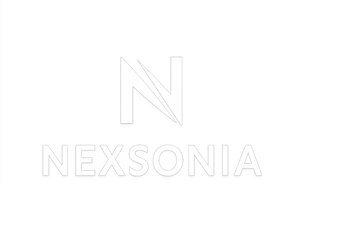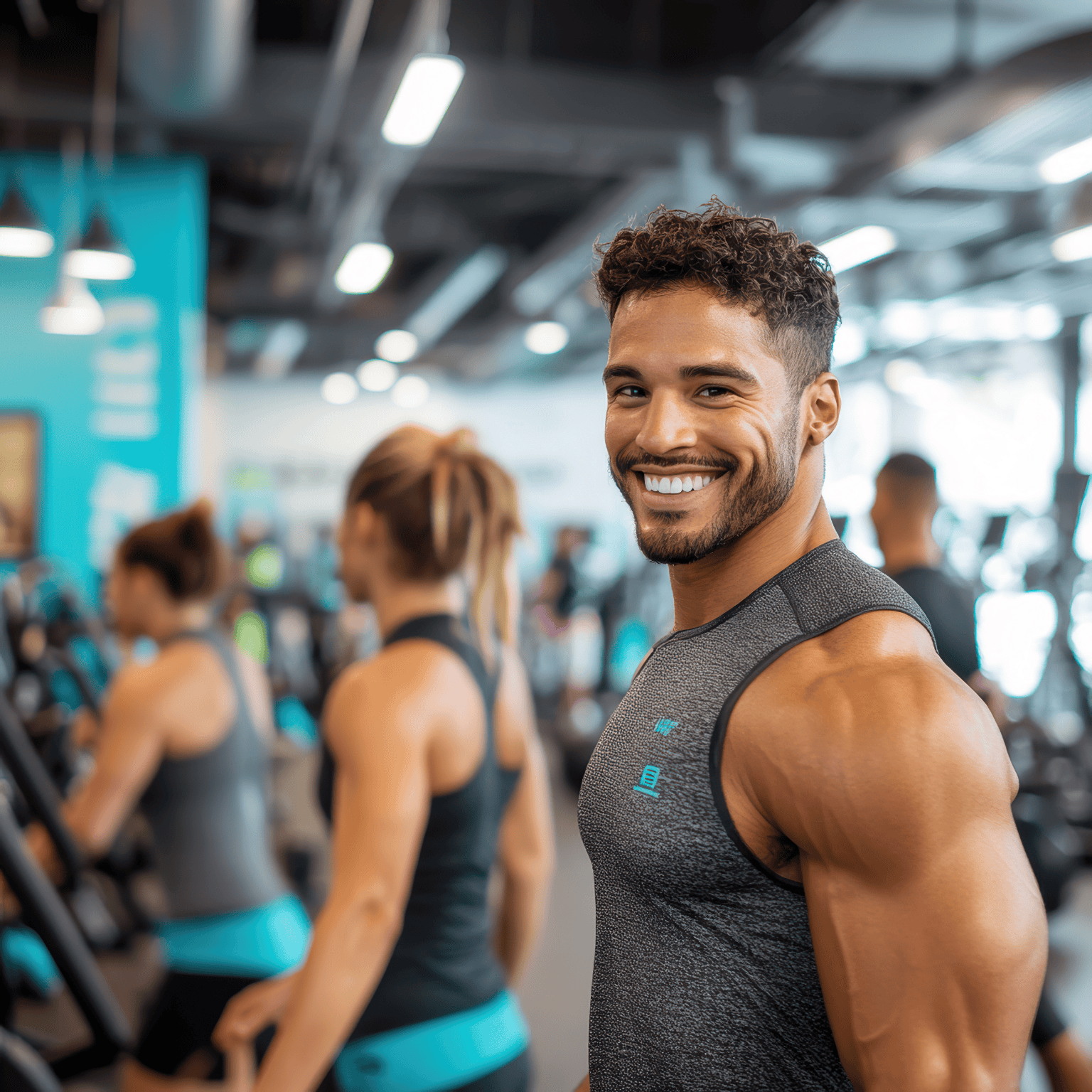21 Fitness Tips Every Beginner Needs to Know
Today, we're diving into another Q&A session. I've been receiving so many great questions, and every now and then, a few quirky ones too. But don't worry, today we'll bust some myths and provide you with solid answers. So, let's jump right in!
Is a Low-Carb Diet Best for All Body Types?
False. There's no evidence suggesting that a low-carb diet is superior to a high-carb diet. As long as you're consuming enough protein and veggies, both fats and carbs can serve as fuel for the body. Some folks prefer more carbs and less fat, or vice versa. Whatever suits you, but remember, it's not a one-size-fits-all. It's essential to consider your lifestyle, energy needs, and personal preferences when determining the balance of macronutrients that works best for you.
Will Running Melt My Muscles?
No, it won't. The concern here might be that excessive running could lead to muscle loss. If your body's fuel reserves are low, it might shrink muscles to conserve energy during long-distance running. So, keep your fuel levels up and feel free to sprint, run 5Ks, or even go the distance. Incorporate strength training into your routine to maintain muscle mass, and ensure you're eating enough to fuel both your runs and muscle recovery. Remember, balance is key.
Favourite Supersets?
Supersets involve transitioning from one exercise to another without rest. While I'm not a huge fan, I do enjoy supersets for arms, going straight from a bicep exercise to a tricep one. That’s my pick! Supersets can be a great time-saver and are effective for increasing the intensity of your workout without extending its duration. They can also enhance muscular endurance and challenge your cardiovascular system, making them a versatile tool for various fitness goals.
Do Hormones Influence Workouts and Nutrition?
Yes, they do. Hormones can impact your ability to build muscle, lose fat, and even how you feel overall. For instance, cortisol, known as the stress hormone, can affect weight gain if levels are consistently high. On the other hand, insulin plays a crucial role in nutrient storage and muscle gain. Understanding your hormonal health can help tailor your fitness and nutrition plan for optimal results. Consulting with a healthcare provider can provide insights into how your hormones might be influencing your fitness journey.
Essential Home Gym Equipment?
Great question! It depends on your goals. A bench, some free weights, and something for back and shoulder workouts are ideal. Dumbbells and a bench can take you far. Resistance bands are also incredibly versatile, offering different levels of resistance for a variety of exercises. A yoga mat can provide comfort for floor exercises and stretching routines. Investing in a jump rope can add a cardiovascular component to your home workouts. Remember, the best equipment is what you'll use consistently.
My Knee Hurts When Jumping. What Can I Do?
If your knee hurts, don't jump into exercises to stabilise it without consulting a professional. See a specialist who can diagnose the issue properly. In the meantime, focus on strengthening the muscles around your knee, such as the quadriceps and hamstrings, under the guidance of a physical therapist or certified trainer. Low-impact exercises like swimming or cycling can maintain fitness levels without aggravating the knee. Always prioritize proper form to prevent further injury.
How Much Coffee Is Too Much?
25 cups a day is too much ... just kidding! Coffee has many health benefits, including reducing the risk of Alzheimer's and Parkinson's. But, stay hydrated and watch for jitters. I personally down about eight cups a day and feel fine. However, everyone's tolerance is different. Pay attention to how caffeine affects your sleep, anxiety levels, and overall well-being. Moderation is key, and if you're feeling adverse effects, it might be time to cut back.
Is Wearing a Belt Necessary When Lifting?
In my experience, injuries often occur when people rely on belts. A belt can disconnect your core, leading to issues later on. If you don't need one, it's best to skip it. Focus on developing a strong core and proper lifting techniques. A belt can help lift very heavy weights, but it should not replace foundational strength and stability. If you decide to use one, ensure it's worn correctly and not used as a crutch for poor form.
Beer or Alcohol in Everyday Life?
Enjoy what you like in moderation. If you’re choosing drinks just because they're "healthier," you might be drinking too much. Alcohol can be part of a balanced lifestyle, but it's important to consider its effects on your fitness goals. It can impact recovery, sleep quality, and weight management. Be mindful of your choices and how they align with your overall health and fitness aspirations. Remember, balance and moderation are key.
Is Walking Combined with a Healthy Diet Enough?
While walking and eating healthy are both beneficial, they might not suffice alone. Include some strength training to ensure a full-body workout. Strength training helps build muscle mass, which can increase your metabolic rate and support weight management. Additionally, it contributes to bone health and functional fitness, enhancing your quality of life. Even incorporating bodyweight exercises at home can provide substantial benefits alongside regular walking.
Does Timing of High-Intensity Interval Training (HIIT) Matter?
The timing of HIIT doesn't significantly affect fat burn. Do it before workouts to warm up or after, depending on personal preference. The most important factor is consistency and ensuring HIIT sessions fit into your schedule sustainably. HIIT is highly effective for improving cardiovascular fitness and metabolic rate, and it's beneficial whether you choose to do it in the morning or evening. Listen to your body and choose a time that aligns with your energy levels and lifestyle.
Can You Eat Carbs and Still Lose Weight?
True. Weight loss is about calorie deficit, not eliminating carbs. Balance your macros, and you can still shed pounds. Carbs are an essential energy source, especially for high-intensity workouts. Choosing complex carbohydrates, such as whole grains, fruits, and vegetables, can provide sustained energy and prevent blood sugar spikes. Monitor your portion sizes and overall intake to ensure you're in a caloric deficit while still enjoying a balanced diet.
Who Has a Better Metabolism: Men or Women?
It's highly individual. Some women have faster metabolisms than some men, and vice versa. Metabolism is influenced by various factors, including age, muscle mass, activity level, and genetics. While men generally have more muscle mass, leading to a higher basal metabolic rate, individual differences can be significant. Focus on factors you can control, such as maintaining an active lifestyle and building muscle, to optimize your metabolism.
How Important is Cardio for Weight Loss?
Nutrition is key to weight loss. Cardio helps increase calorie deficit, but isn't essential. It's a tool that can enhance cardiovascular health and improve endurance. Combining cardio with strength training and a balanced diet can create a comprehensive fitness plan. Find aerobic activities you enjoy, whether it's running, cycling, swimming, or dancing, to ensure consistency and enjoyment in your routine.
How to Get a Six-Pack?
Nutrition is crucial. We all have a six-pack underneath, and diet helps reveal it. Core workouts can enhance muscle size, but focus on eating right. Reducing your body fat percentage through a calorie deficit and balanced diet will help make ab muscles more visible. Incorporate exercises like planks, leg raises, and Russian twists to strengthen and define your core. Consistency in both nutrition and exercise is key to achieving visible results.
Does Weight Training Make Thighs Bulky?
Big myth! Weight training won't bulk you up. Initially, muscles may retain more fluid, but that subsides. Strength training leads to a toned physique. It helps increase metabolic rate and supports weight management. For most people, significant muscle hypertrophy requires specific training and nutritional strategies. Focus on a balanced routine that includes both strength and cardio to achieve a lean, strong body.
More Reps with Lower Weight or Less Reps with Higher Weight?
Both methods work. Mix them depending on your muscle targets, training cycles, and personal needs. Lower weights with higher reps can improve muscular endurance, while heavier weights with fewer reps can increase strength and muscle mass. Periodisation, or varying your training program over time, can optimise results and prevent plateaus. Listen to your body and adjust your approach based on your fitness goals and progress.
Is Pasta Okay Instead of Rice?
Yes, you can enjoy pasta while staying healthy. It's more about portion control than the type of carb. Both pasta and rice can be part of a balanced diet. Choose whole-grain versions for added fibre and nutrients. Pay attention to serving sizes and pair them with lean proteins and plenty of vegetables for a nutritious meal. Variety in your diet can prevent boredom and ensure a wide range of nutrients.
Are Full-Body Workouts Daily a Bad Idea?
It depends on your weekly schedule. For five days a week, opt for targeted workouts. For less frequent sessions, full body can work. Full-body workouts can be efficient for building overall strength and fitness, especially for beginners or those with limited time. Ensure adequate rest and recovery between sessions to prevent overtraining. Listen to your body and adjust your routine as needed to maintain progress and avoid injury.
Too Old to Get Fit After 30?
Absolutely not! Age doesn't limit fitness. Tailor your approach to suit your age and capabilities. Exercise can improve health, mood, and quality of life at any age. Focus on activities you enjoy and consider incorporating strength, flexibility, and balance exercises. Listen to your body and consult professionals if needed to create a safe and effective fitness plan. It's never too late to start, and the benefits are worth it.
Training for at Least 30 Minutes Necessary?
Nope! Even a 10-minute session can be effective. Short, intense workouts can improve cardiovascular fitness and boost metabolism. The key is consistency and intensity. High-intensity interval training (HIIT) or circuit training can provide substantial benefits in a shorter time. Find ways to incorporate physical activity into your daily routine, like brisk walks or quick home workouts, to maintain an active lifestyle.
Is Training on an Empty Stomach Better?
Not necessarily. Fuel your body to optimise workouts, especially for muscle growth and strength. While fasted cardio can be beneficial for some, it's not suitable for everyone. Listen to your body and experiment to find what works best for you. A small pre-workout snack can provide the energy needed for high-intensity sessions. Prioritise post-workout nutrition to support recovery and muscle repair.
That's it for today! I hope these answers clear up some questions. Let me know your thoughts in the comments, and don't forget to subscribe. Now, I'm off for my eighth cup of coffee. See you next time!

